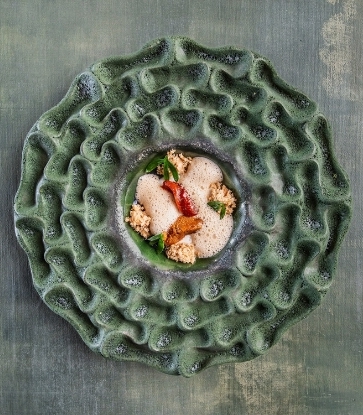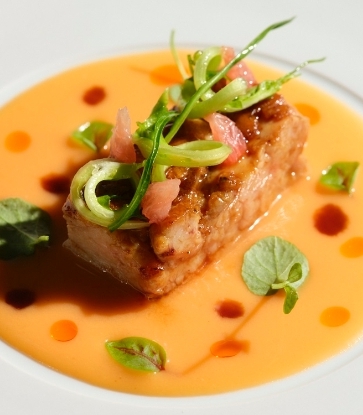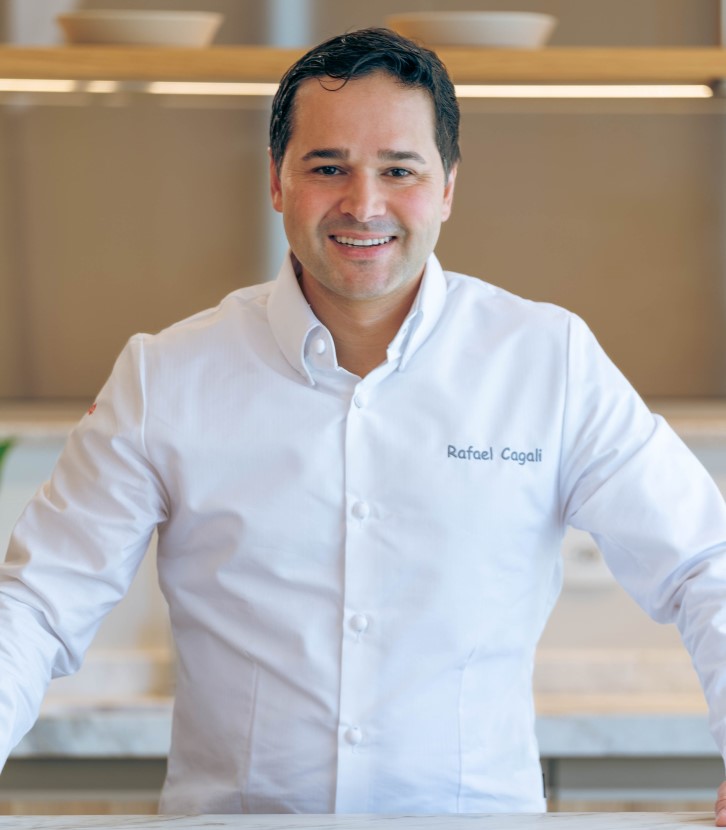In 2021 Patrick Guilbaud restaurant celebrated 40 years in business – and both the restaurant and its eponymous chef-owner have well and truly earned their place in Irish culinary history.
When the restaurant first opened in 1981, it was situated at St James's Place, off Baggot Street. It moved to its current location within the Merrion Hotel in 1997.
It was awarded its first Michelin Star in 1988 and achieved its second Star in 1996, which it has retained ever since.
In 2015, Patrick Guilbaud was awarded the Legion d' Honneur – the highest honour that can be bestowed by the French government – for his work as a chef and restaurateur.
Although he first started as a chef, it has been many years since he graced the stoves. Most will only know him as the restaurant’s genial host: greeting his guests like long lost friends and working the room like the true professional that he is.
No man is an island, however, and the success of the restaurant has also been thanks to the tight-knit team M. Guilbaud has built around himself over the years, including his son (Assistant Manager) Charles, Manager Stéphane Robin (second right), Executive Chef Guillaume Lebrun (second left), who has headed up the kitchen since 1987, and Head Chef Kieran Glennon (right).
We spoke to the man behind the Michelin Stars to find out more...

How have you celebrated this milestone, both professionally and personally?
It is such a positive thing to be marking this milestone not least because forty years in any partnership or venture is worthy, but in the restaurant business it is remarkable – also, after the last two years, a celebration is doubly vital!
To celebrate, we have designed a special Taste of Forty tasting menu and have teamed up with Champagne Deutz to create Cuvée Restaurant Patrick Guilbaud which we’ve been serving in the restaurant. We’ve also designed a new selection of commemorative glassware to add to our range and have organised some exclusive wine events with exceptional wine makers such as Domaine Ponsot and Château de Fieuzal.
On a more personal level, we marked the occasion over dinner with friends and family.
What do you feel has been the secret of your success and longevity?
For me, there are two things that have always been essential. The first is the right ingredients; quality is paramount. It starts and ends with the produce. We buy the best and then put our personality into the product.
Teamwork is just as important. When I arrived in Dublin I was absolutely certain I could be successful with the right team behind me and so I went about putting that team together and motivating them. Enduring in this business is the result of an uncompromised pursuit of excellence, consistency and teamwork.

At what age did you decide you wanted to go into the restaurant business and who or what inspired you?
My passion for cooking came from my mother’s side of the family. My grandmother was a lovely cook and it was in her café in Brest where the family food tradition began – but it was my mother who actually taught me how to cook. She put great emphasis on preparation and presentation.
My dad wanted me to be an engineer and I did go to aviation school for a spell but it wasn’t for me. It was always going to be the restaurant business. Professionally, I started at the Hotel Moderne in Caen and, after my military service, which I served at the British Embassy in Paris, I worked in the Hotel Morizet in Munich and in Le Marée and Ledoyen in Paris, before moving to Manchester in 1972.
Innovative chefs, like the greats – Paul Bocuse, Michel Guérard, Alain Ducasse, Albert Roux and Guy Savoy – inspired me in my early career and still do now.

When did you originally move to Dublin and why?
After moving to the UK in the early seventies I met my wife, Sally, and we opened a restaurant in Alderley Edge in Cheshire. It was there at Le Rabelais that I met an Irish businessman, who was doing some work in the area, and he planted the idea in my head about moving to Dublin.
One of the factors that convinced me to move to Ireland was the availability of consistent and high quality produce. The idea of opening a restaurant in a capital city was attractive too and so we made the move in 1981.
It was a tricky start, with high interest rates and recession, but we persisted and got through it. Back then there were about 350 restaurants in the country; today there are over 3,000.

Do you ever miss France? Do you still travel there?
When I arrived in Ireland forty years ago there was something about it that stuck right away. The countryside is beautiful and it’s culturally rich, naturally, but it was more than that. It was the people. I felt at home straight away. Maybe it was the shared Celtic heritage. Whatever it was, there was an instant rapport. Over time, I would grow to love the Irish easygoingness. Much as I love France I don’t miss living there and while I do miss my family, I’m lucky enough to have the opportunity to travel to see them often.

What inspires you now?
So many things! Seeing the evolution of the Irish food scene over the last four decades – the country has flourished and the produce is better than ever; world-class ingredients, locally grown and brought right to our door.
The palate of our customers has become more sophisticated too. They’ve travelled and are more discerning about what they are eating; they have high expectations of provenance and quality. This is wonderful as it ensures that as a team we are always looking forward.
Constant innovation is vital. If you don’t innovate, two things happen: your customer gets bored and your team gets complacent. I think it’s important for our customers to know that we’re always trying to improve things for them.

What have been the hardest things about owning a restaurant?
External factors primarily. I arrived in Dublin to a 24% interest rate when recession was rife and emigration was a way of life. Down the line there was a dot com crash and a ’Freedom Fries’ backlash. Then came the Celtic Tiger, followed by the world financial crash – and now Covid. In the cycle of boom and bust, the hospitality business is always on the edge. It is not for the fainthearted.

What do you consider the best thing about being a restaurateur?
Winning and retaining our two Michelin Stars has been a highlight certainly. Not just because the business is about awards but because it gives a wonderful sense of achievement to the entire team. The Stars are proof of quality and service. When we opened our doors in 1981, the prospect of Michelin Stars seemed like a galaxy away. Forty years later, it gives me immense pleasure to think of my grandparents and their café in Brest and to see where it brought us.
Food is a way of life, a culture, a passion. I wanted something different for Dublin: a restaurant that would stand the test of time and become a part of the city. And now in our fortieth year it’s an honour to know that it’s not just our place anymore, it’s Dublin’s place.




















